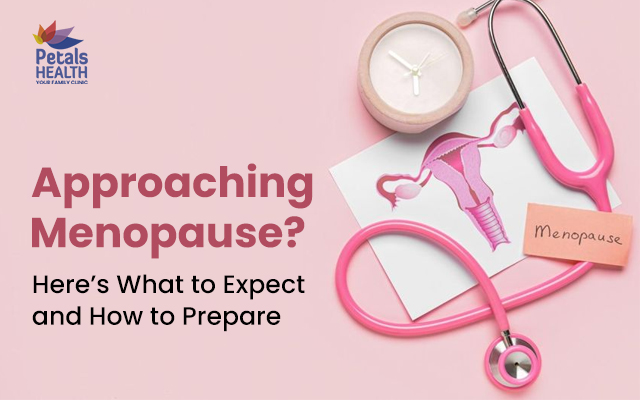August 21, 2025 | by Admin

You’ve heard the term “menopause” for years, but when it’s your turn to face it, you might feel overwhelmed by the changes that come with it. What exactly can you expect, and how can you best prepare for this new chapter in your life?
The good news? Menopause is a natural process, not a disease, and with the right approach, it can be a time of empowerment, not uncertainty. It’s all about understanding the changes and taking proactive steps to care for yourself.
Doctors from Petals Health Clinic, a gynaecology treatment clinic in Kolkata, have explained what’s to come and how you can make the transition smoother.
Menopause marks the end of your menstrual cycles, typically occurring between the ages of 45 and 55, although it can happen earlier or later. The key is understanding the menopause symptoms, so you’re not caught off guard.
As your ovaries produce less estrogen, you’ll notice a variety of physical and emotional changes. Some of the most common menopause symptoms include:
Irregular periods that eventually stop completely.
Hot flashes and night sweats can disrupt your day or sleep.
Mood swings, including irritability, anxiety, or even depression.
Vaginal dryness and changes in sexual desire.
Sleep disturbances are making it harder to rest through the night.
The hormonal fluctuations during menopause can affect more than just your periods. Expect changes in your skin, hair, and body. You might notice:
Skin changes: Thinning skin and the potential for increased dryness.
Weight gain during menopause: A slowdown in metabolism can lead to a few extra pounds around the waist.
Hair thinning: Some women notice a decrease in hair thickness, especially on the scalp.
These changes are all normal, but it doesn’t mean you have to endure them without support. Petals Health Clinic, a reputed gynaecology treatment clinic in Kolkata, can provide personalised care to help manage these symptoms.
With hormonal changes, emotional fluctuations are common. You may experience moments of sadness, irritability, or even feelings of uncertainty about the future. It’s also common to feel anxiety over the physical changes, but understanding that these feelings are temporary can help.
Managing stress through meditation, relaxation techniques, and regular exercise can make a significant difference in maintaining emotional well-being during menopause.
1. How do I know if I’m entering menopause?
You may start experiencing irregular periods, hot flashes, and other menopause symptoms mentioned above. A blood test can confirm lower estrogen levels, but your healthcare provider can guide you.
2. What is the average age for menopause?
Most women go through menopause between 45 and 55 years old, but it can happen earlier or later. The timing varies from person to person.
3. Can menopause cause weight gain?
Yes, many women experience weight gain during menopause due to slower metabolism, hormonal changes, and lifestyle shifts. Staying active and eating a balanced diet can help manage weight.
4. Are hot flashes normal during menopause?
Yes, hot flashes are a common symptom of menopause caused by hormonal changes. They can be managed with lifestyle adjustments or medical treatments.
5. What can I do to manage menopause symptoms?
Exercise, a balanced diet, staying hydrated, and stress management can help alleviate many menopause symptoms. Hormone therapy or alternative treatments can also be considered.
While menopause might seem daunting, it’s a natural part of life. With the right preparation and support, you can manage the symptoms and even embrace this stage of your life.
Knowledge is power — understanding what to expect and how to take care of your body and mind will make all the difference.
Consult with doctors from Petals Health Clinic, a gynaecology treatment clinic in Kolkata, and discover personalised care for a smoother transition.